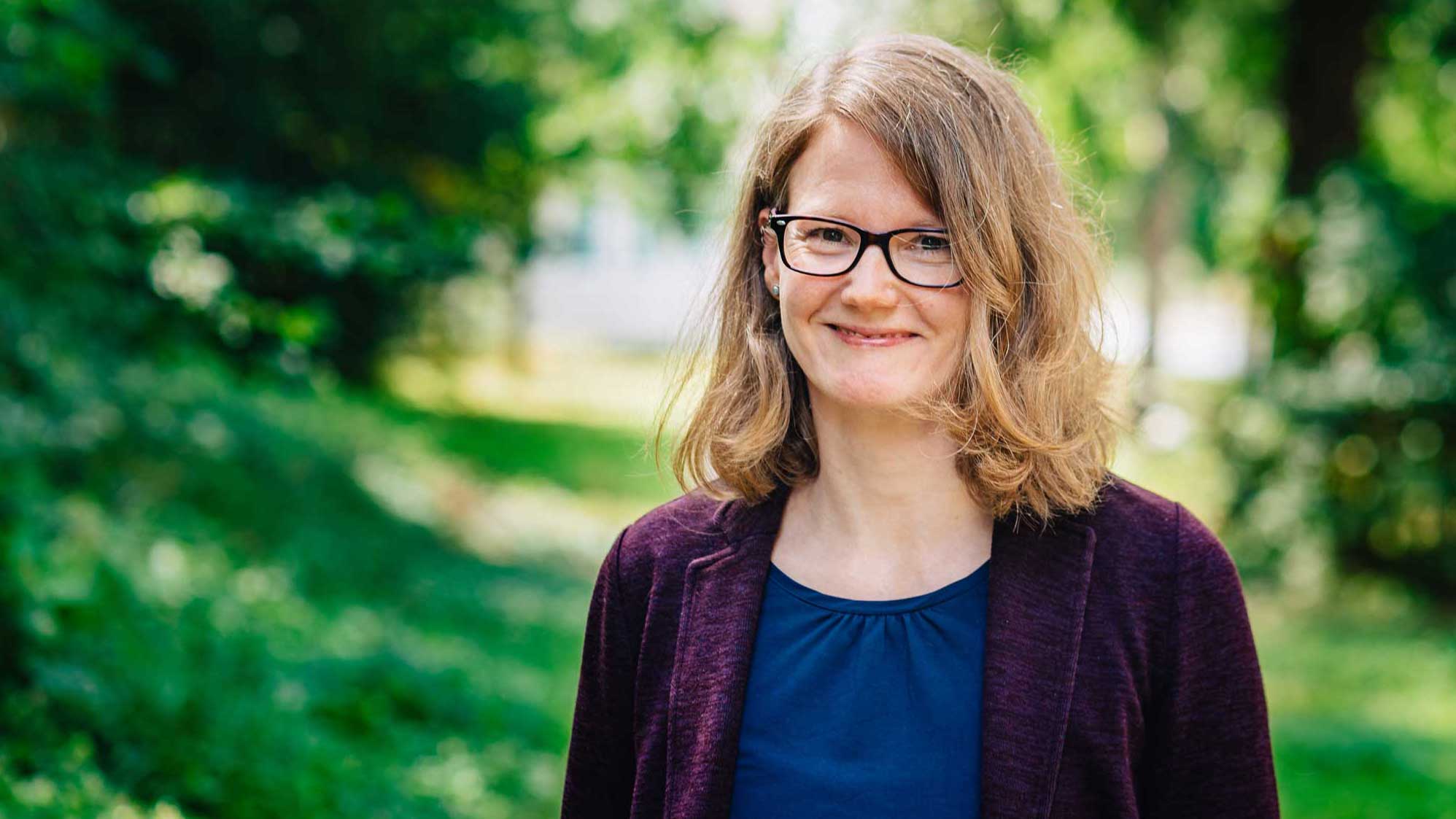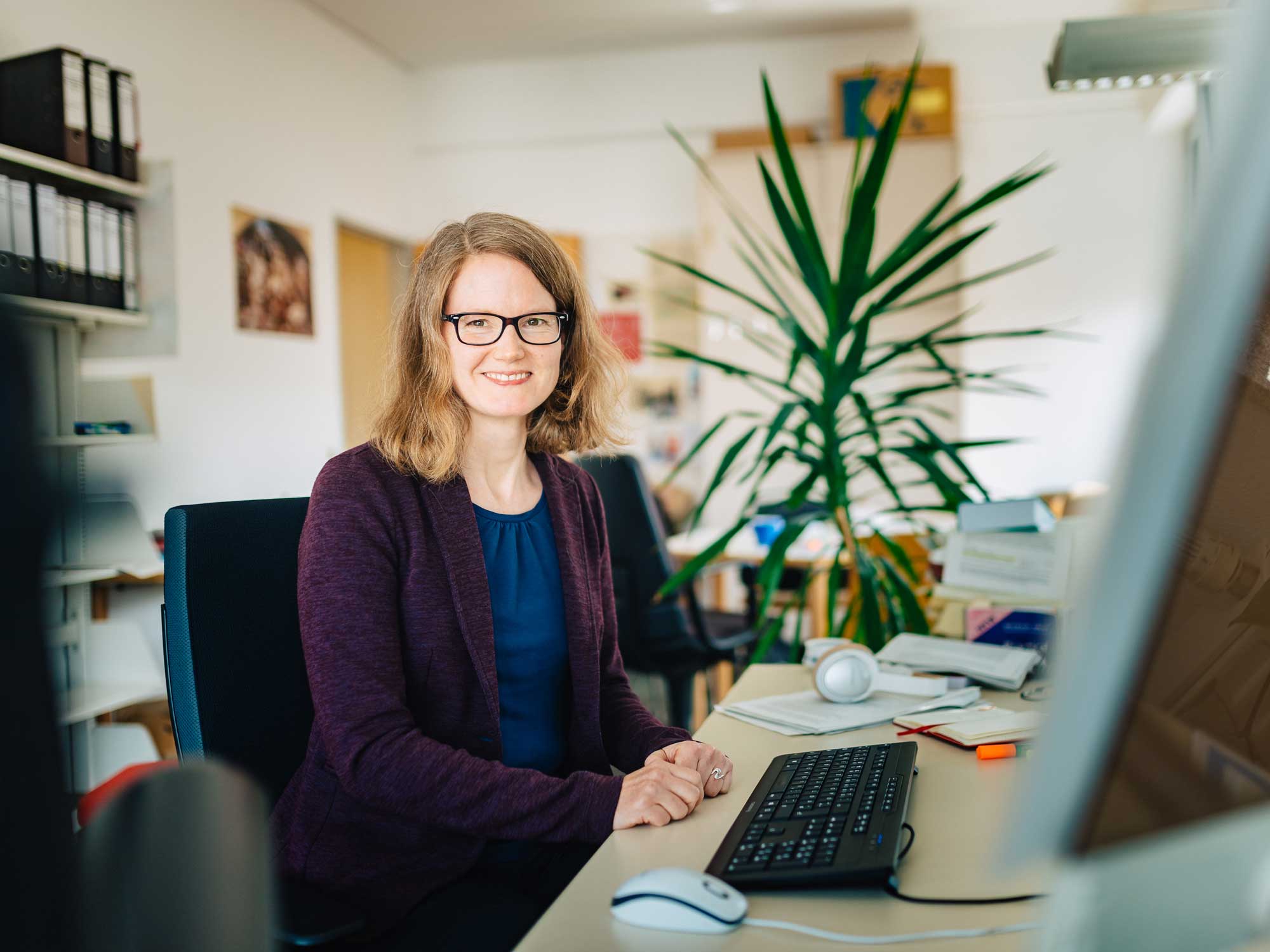
©WFB/Jonas Ginter
“Sort Out Additional Old-Age Provisions Early”
Having enough money to live on – not only in the younger years but also in old age – that is something that everyone hopes for. But is there a future for the “traditional pension”? An interview with the professor of sociology Simone Scherger.
For many people in Germany their pension is just enough to live off. However, for an increasing number it is not enough – and this number will probably rise further in the future. At the same time, society is ageing. What does this development mean for the next decades and for those who are young today? Simone Scherger, sociology professor at the University of Bremen, is an expert in this field. She most recently was part of the government’s Pension Commission on the topic of “The Future of Pensions”.
Ms. Scherger, you advised politicians as a scientific expert in the pension commission. What was your exact role in the government’s commission?**
The establishment of the Pension Commission was decided upon in the coalition agreement of our current government – partly due to the fact that no consensus could be found in certain areas. The commission was to make suggestions for the further development of the pension system from 2025 onwards. What are pensions going to be like and how are they going to be financed until 2040 or 2050?
Why were you asked to be part of the commission and how does that actually work?**
I received a call from Berlin from the responsible state secretary at the Federal Ministry of Labour and Social Affairs. I had to then decide quite quickly if I wanted to be one of the three scientific members of the 10-person commission. My work on the life course and social policy, social inequality, and the topic of employment and ageing qualified me. I was most probably nominated by the German Trade Union Confederation. They were apparently interested in bringing a new face into the commission – someone who doesn’t come from the field of economics.
What is the work in such a commission like?**
You meet once or twice a month and together you compile shared knowledge on the subject. Further experts are invited for consultation and we listened to the opinions of various interest groups. We also spoke with entirely normal people from all age groups and listened to their opinions, expectations, and fears in a “dialogue of generations”. There are a lot of debates – after all, many different viewpoints meet in such a commission. At the end, recommendations, which are included in a final report, are developed.
“We also spoke with entirely normal people from all age groups.”
What was the result? Does the statutory pension – in its current form – have a future?**
The pension insurance as we know it should definitely continue to be an important component of old-age provision. The commission agreed on that. There were different opinions on the question of how many other components should be added and how and where changes have to be made in order to secure the living standard of people in old age – for example, changes to the pension level, contribution rates, and the regular state pension age. We actually only gained very little agreement in these areas – which was partially down to the fact that half of the commission was made up of politicians. This obviously reflected the disagreement of the coalition in the matter. The participating representatives from the fields of science, trade unions, and employers also had their differences. That is why the report is not the big leap that some people had hoped for. The report includes small suggestions for the further development of various components and formulates superordinate guidelines which policy makers should follow in the future.

©Alexas Fotos / Pixabay
You were one of ten experts. Do you see your position reflected in the result?**
Science only provides the basis for political measures – currently, we can also see this in the corona crisis. Political measures are founded on the allocation of normative values and not alone on science. My task was to rather ensure that certain points were not forgotten – for example social inequality, the effects of decisions on low-income earners or women, or the justice of measures. All of these were issues that I, as a sociologist, repeatedly broached in the commission, and that many of the political and economical representatives do not always have in mind. I certainly do find several important points of my work reflected in the final report.
“The statutory pension is better than its reputation.”
If you were a young student today – would you be worried about your future? Or to be more exact: Will there still be a statutory pension in 30 or 40 years?**
I unfortunately do not have a crystal ball. One thing that is certain is that the statutory pension will continue to be a significant component of old-age provision. It is better than its reputation – it was badmouthed 10, 20 years ago. It will not, however, be the only component for most people. It is definitely advisable that everyone sorts out their additional old-age provisions early. The old-age provision of the future will be a mixture of statutory, occupational, and private pensions. In comparison to entirely private pensions, which are often complex and confusing, occupational pensions often have many advantages. In the case of private pensions, federal subsidies should certainly be taken advantage of. I am personally of the opinion that young people should get advice on such matters from independent service providers, such as consumer consultation offices, who are not focused on certain products or commissions but rather on the best solutions. Furthermore, a reasonably continuous employment career, of which large parts are in full-time employment or close to full-time employment, is a prerequisite for a good individual pension – that is especially important for women.
Profile:

Simone Scherger is a professor of sociology at SOCIUM – Research Center on Inequality and Social Policy at the University of Bremen and is also the institute’s vice spokesperson. Among her main research topics are individual life courses and social policies.